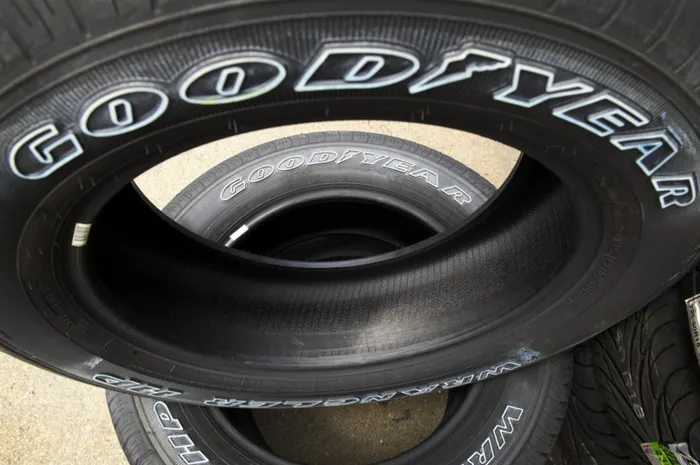
Concern has been raised as Goodyear South Africa serves Section 189 notice to workers' unions National Union of Metalworkers of South Africa on restructuring at their manufacturing plant in Uitenhage Eastern Cape, putting over 900 jobs at risk.
Image: David Paul Morris
Goodyear South Africa’s announcement on Friday to discontinue its manufacturing operations in Uitenhage, Eastern Cape, has sent shockwaves through the region, with over 900 jobs at risk due to a Section 189 notice served to the National Union of Metalworkers of South Africa (Numsa).
The decision, communicated by Goodyear’s Managing Director Paul Gerrard, has raised alarm among unions, and economic analysts, who fear the closure could devastate the local economy amid high unemployment.
Mziyanda Twani, Numsa Eastern Cape Regional Secretary, said on Friday that the union is dismayed by Goodyear South Africa's announcement to discontinue its manufacturing operations in South Africa.
“The union has been served with a Section 189 notice from Paul Gerrard, the Managing Director of Goodyear Tyres in South Africa. The manufacturing plant is located in Uitenhage in the Eastern Cape, and the company envisages that at least 907 employees will be affected by the plant closure,” Twani said.
Twani added that as a region, Numsa was deeply worried about the impact on workers and their families in Uitenhage. “It is becoming a ghost town given that ContiTech, which is part of Continental, closed down and it is also in the same tyre and rubber industry. At the same time, it may not be easy to replace these jobs. The Eastern Cape has a very high unemployment rate at 41.9% according to StatsSA.”
Twani said that while the outlook is bleak, as Numsa, "we stand ready to do everything we can to defend the jobs of our members and to negotiate fair severance packages. The dates of the first consultation will be communicated in due course".
Chris Harmse, consulting economist of Sequoia Capital Management, said he is concerned about the move.
“One of the issues could well be that the African Growth and Opportunity Act (Agoa) could be ending due to the strain on South African and American relations. This could well have led to Goodyear South Africa wanting to scale down operations at its Uitenhage plant. The Agoa most major part is made up of 60% of the motor industry, with the next largest part being the agriculture industry. We hope that if Agoa does end, other major companies don't look to scale down business,” he said.
Goodyear South Africa is the heart of business in Uitenhage. “Another issue is that the cost of doing business in South Africa is becoming too high, including issues with electricity, water, and failing infrastructure. We could see businesses looking to move their operations to other parts of Africa and to countries like Botswana and showing a preference to use Walvis Bay in Namibia for doing business South Africa already faces steep economic challenges. We are seeing that South Africa's GDP is being revised downwards, and this does raise concern about doing business in South Africa,” he said.
Nduduzo Chala, the managing executive at South African Tyre Manufacturers (SATMC), said that he is concerned about Section 189 at Goodyear South Africa. “However, we must remember that Goodyear South Africa has entered a consultative process, and there will be an opportunity for the government, trade unions, and other stakeholders to voice their concerns. It is not set that they would retrench over 900 workers and end operations at the manufacturing plant in Eastern Cape. We just have to wait and see how the process unfolds.”
SATMC is concerned about the possibility of the plant closing. “It's not a great situation for us as SATMC, workers, and the Eastern Cape community, but we have to see what happens during the consultative process,” Chala said.
Dr Eliphas Ndou, an economist and author at Unisa's Department of Economics, said the manufacturing sector's contribution to GDP has become smaller over time. “The sector faces many challenges, including low-cost imports and a decline in local manufacturing competitiveness. The decline in the latest BER business confidence index shows that most businesses are not satisfied with prevailing business conditions. Hence, the development in the tyre manufacturing sector is a clear message to the government that wants to grow the economy, create, and keep employment to fast-track the implementation of structural reforms that will improve the local manufacturing sector's competitiveness, including tyre producers.”
Ndou added that the structural reforms may help to significantly improve the tyre manufacturers' competitiveness by ensuring the availability of reliable power and water supplies, and not an above-inflation increase in administered prices. “These factors are crucial for the local industry's competitiveness.”
BUSINESS REPORT